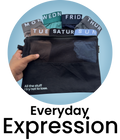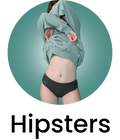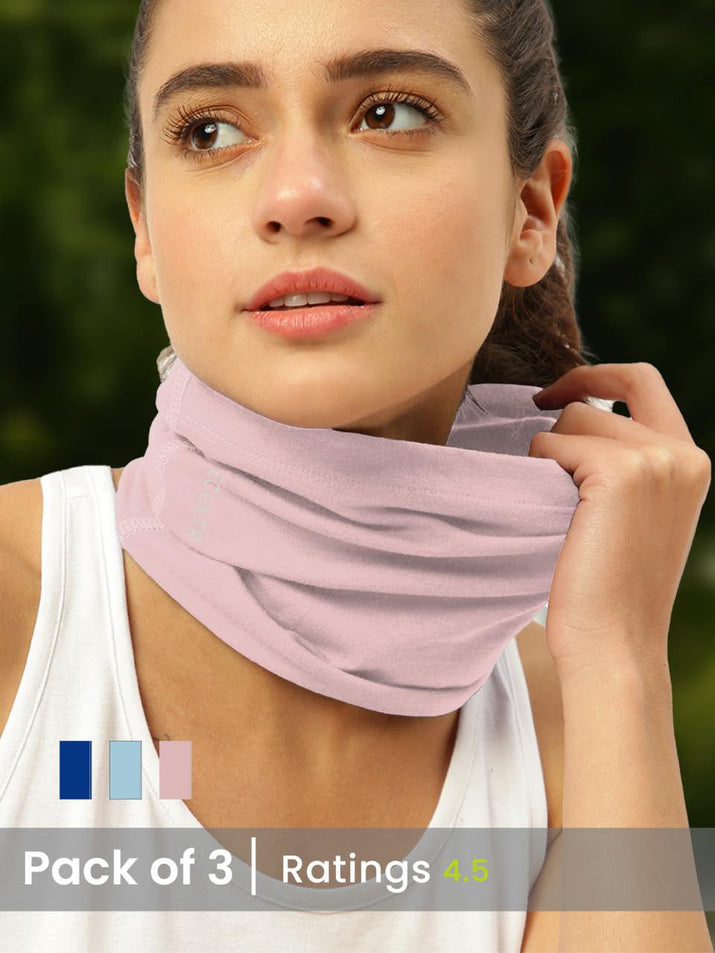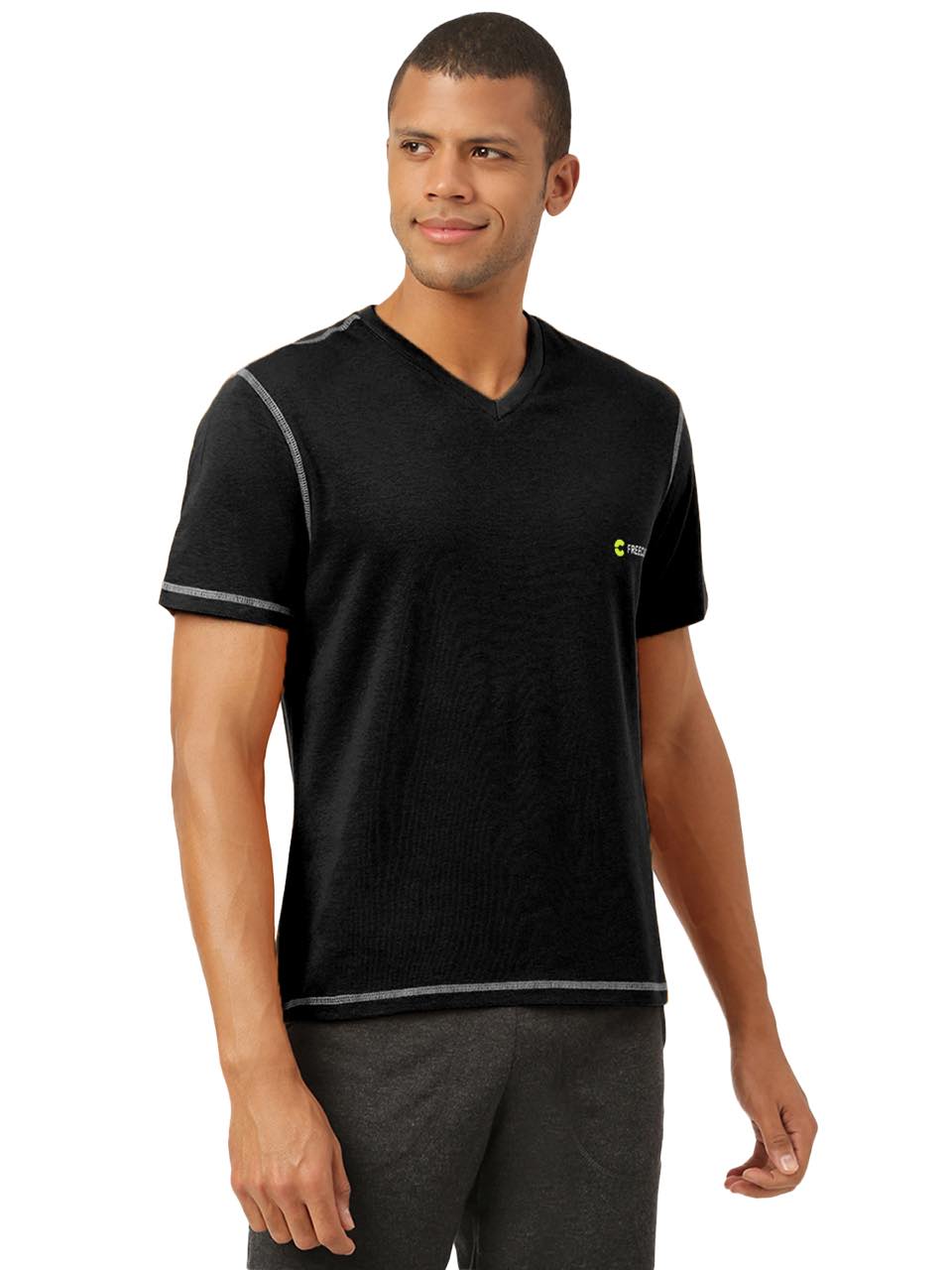The bandana, a deceptively simple square of woven fabric, has evolved from its utilitarian roots to become a cornerstone of versatile style and practical comfort. Historically prized for its functional attributes in dust mitigation or sweat absorption, particularly in demanding environments, its contemporary appeal encompasses diverse applications. Recent fashion cycles see the bandana embraced as a primary streetwear accent, ranging from protective head wraps and neck gaiters to expressive wristbands. Advances in textile technology allow for superior moisture-wicking and UV protection, broadening its everyday utility, while digital printing techniques enable intricate designs. This integration across high fashion, activewear. Daily accessorizing underscores the bandana's enduring adaptability and innovative functional evolution.

Understanding the Bandana: More Than Just a Cloth
A bandana, at its core, is a simple square or triangular piece of cloth, typically patterned, that has transcended its humble origins to become a global icon of versatility, style. Utility. The term "bandana" itself is believed to originate from the Hindi word "bāndhnū," referring to a tie-dyeing technique, highlighting its deep roots in textile traditions. Historically, these vibrant cloths served as practical head coverings, protecting workers from dust and sun. Distinguishing groups or affiliations. From cowboys in the American West to revolutionaries, farmers. Fashionistas, the bandana has woven itself into the fabric of countless cultures and lifestyles, proving that its appeal extends far beyond a mere accessory. Its enduring popularity lies in its straightforward design combined with an astonishing array of applications, making the bandana a truly remarkable item.The Versatility of the Bandana: A Style Chameleon
The bandana's adaptability as a fashion statement is truly unparalleled. It can effortlessly transform an outfit, adding a touch of flair, color, or rebellion depending on how it's styled. Its simplicity allows for endless creative expression, making the bandana a favorite among diverse fashion trends.- Headwear One of the most classic ways to wear a bandana.
- Headband Folded into a strip and tied around the forehead to keep hair out of the face or absorb sweat. This is particularly popular for athletes, hikers, or during hot weather.
- Hair Tie/Wrap Used to secure a ponytail, bun, or as a full head wrap to protect hair from sun, wind, or simply for a chic look. Think of vintage styles or bohemian aesthetics where a bandana can cover the entire head.
- Skull Cap/Durag Tightly tied to cover the entire head, often used to preserve hairstyles or for protective purposes.
- Neckwear The bandana offers several stylish options for the neck.
- Neckerchief/Scarf Tied loosely around the neck, adding a pop of color or pattern to a simple shirt. This can range from a casual look to a more refined, European-inspired style.
- Neck Gaiter (Dust/Sun Protection) Pulled up over the lower face and neck, offering protection from dust, wind, or sun, a common use for bikers, construction workers, or outdoor enthusiasts.
- Wrist/Arm Accessory A simple yet effective way to add a subtle accent.
- Wristband Tied around the wrist to absorb sweat during activities or simply as a casual accessory.
- Armband Worn higher on the arm, often for stylistic purposes or to hold small items.
- Bag Accessory Elevate a plain bag with a touch of fabric.
- Handle Wrap Tied around a purse or backpack handle for a personalized touch.
- Bag Charm Knotted onto a zipper or strap as a decorative element.
- Clothing Accent The bandana can also be integrated directly into clothing.
- Pocket Square Tucked into a jacket or shirt pocket for a smart casual or formal look.
- Belt Tie Woven through belt loops as an alternative to a traditional belt, adding a relaxed vibe.
- Ankle Tie Wrapped around the ankle for a unique, edgy style, often seen in streetwear.
Beyond Fashion: Practical Uses of the Bandana
While its fashion credentials are undeniable, the true genius of the bandana lies in its myriad practical applications. This simple piece of cloth can be an invaluable tool in everyday life, travel. Even emergencies. Many outdoor adventurers and survival experts swear by the bandana as an essential item due to its lightweight nature and diverse utility.- Sweat Management Perhaps one of the most common and appreciated uses. A bandana worn as a headband or around the neck can effectively absorb sweat, keeping it out of your eyes and off your skin during workouts, hikes, or hot days.
- Dust and Sun Protection
- Face Mask In dusty environments or during activities like cycling or motorcycling, a bandana can be pulled up over the nose and mouth to act as a basic filter against airborne particles.
- Sun Shield Wrapped around the head or neck, a bandana offers a lightweight barrier against harmful UV rays, preventing sunburn on exposed skin.
- Basic First Aid In a pinch, a bandana can serve several critical functions.
- Tourniquet While not a substitute for proper medical training, in extreme, life-threatening bleeding situations, a bandana can be used as a makeshift tourniquet. Always seek professional medical attention immediately.
- Sling To support an injured arm or wrist.
- Bandage/Compress Folded and applied to a wound to stop bleeding or protect it, though direct contact with open wounds should be avoided if the bandana isn't clean.
- Cold Compress Soaked in cold water and applied to a feverish forehead or an injured joint to reduce swelling.
- Emergency Signaling A brightly colored bandana can be tied to a tree branch or waved to attract attention in an emergency situation.
- Water Pre-Filter While a bandana cannot purify water, it can be used to pre-filter larger sediment and debris from questionable water sources before further purification (e. G. , boiling or chemical treatment).
- Makeshift Bag or Pouch Foraging for berries or carrying small items is easy when you knot the corners of a bandana together to create a temporary carrier.
- Cleaning Cloth From wiping down surfaces to cleaning glasses or camera lenses (if the bandana is soft and clean), its absorbent nature makes it handy.
- Pot Holder/Hot Pad Folded multiple times, a bandana can provide a basic layer of protection when handling hot pots or pans around a campfire.
Choosing Your Bandana: Material, Size. Pattern
Selecting the right bandana involves more than just picking a pretty pattern. The material, size. Design all play a role in its comfort, durability. Suitability for various uses. Understanding these elements will help you choose the perfect bandana for your needs.| Characteristic | Description & Considerations |
|---|---|
| Material |
|
| Size |
|
| Pattern & Color |
|
Caring for Your Bandana: Longevity and Hygiene
Proper care ensures your bandana remains vibrant, soft. Hygienic, especially given its diverse uses. Whether it's protecting you from the sun, absorbing sweat, or adding a stylish flair, a well-maintained bandana will serve you longer and better.- Washing Instructions
- Cotton Bandanas Most cotton bandanas are machine washable. Use cold or warm water with a mild detergent. Washing them with similar colors is advisable, especially for new bandanas, as colors can sometimes bleed.
- Polyester/Blends These can also typically be machine washed on a gentle cycle with cold water. Avoid hot water, which can damage synthetic fibers and printed designs.
- Silk Bandanas Silk requires delicate care. Hand washing in cold water with a gentle, pH-neutral detergent specifically designed for silk is recommended. Avoid harsh scrubbing or wringing.
- General Tip Always check the care label if your bandana has one, as specific dyes or embellishments might require unique treatment.
- Drying Tips
- Cotton/Polyester Air drying is best to prevent shrinkage and maintain fabric integrity. If using a dryer, tumble dry on low heat. Over-drying can make the fabric stiff or cause colors to fade.
- Silk Air dry flat or hang on a padded hanger, away from direct sunlight or heat, which can damage the silk fibers.
- Ironing
- Cotton Can be ironed on a medium-to-high heat setting, ideally while still slightly damp, to remove wrinkles.
- Polyester/Blends Iron on a low heat setting if necessary, using a pressing cloth to protect the fabric from direct heat.
- Silk Iron on the lowest setting, preferably while damp, on the reverse side of the fabric.
- Storage Store your bandana folded or rolled in a clean, dry place to prevent wrinkles and keep it ready for use.
- Importance of Hygiene Given that a bandana can come into contact with your face, sweat. Various environments, regular washing is crucial. If you use your bandana for sweat absorption or as a face covering, washing it after each significant use will help prevent skin irritation and maintain cleanliness. A clean bandana is not just about aesthetics; it's about comfort and health.
Conclusion
The humble bandana, often underestimated, truly stands as a testament to effortless style and unparalleled utility. Forget limiting it to mere headwear; consider it a versatile accessory for your everyday ensemble. I personally keep a vibrant paisley one tucked into my bag – it’s perfect for a sudden breezy day as a neckerchief or instantly transforms a plain tote by tying it to the handle, echoing current 'quiet luxury' trends that prioritize subtle details. During my last summer trek, it doubled as a sweatband and an impromptu sun shield, proving its practical value beyond just aesthetics. It’s not merely fabric; it’s a canvas for personal expression, offering a quick, affordable style upgrade. So, embrace the bandana. Experiment with different folds, colors. Placements. Let it be the piece that effortlessly elevates your look, adds comfort. Showcases your unique flair. It’s time to rediscover this timeless staple and unlock its full potential.More Articles
Bandana – A Timeless Accessory for Every Look & OccasionBandana for Men – Rugged Style & Sweat Absorption
Men's T-Shirt – Casual Style & Breathable Fabric
Women's Tank Top – Lightweight Feel & Everyday Versatility
Sling Bag – Secure Storage & Hands-Free Convenience
FAQs
So, what exactly is a bandana good for?
Bandanas are incredibly versatile! You can wear them as a stylish accessory for your hair, neck, or wrist, or use them practically to wipe sweat, keep hair out of your face, or even as a makeshift face covering. They really blend fashion with function.
How many different ways can I actually rock a bandana?
Loads! Tie it around your ponytail or bun, fold it as a headband, knot it around your neck like a mini scarf, wrap it on your wrist, or even attach it to your bag for a pop of color. The styling options are pretty much endless, letting you express your unique vibe.
Are bandanas really comfortable to wear all day long?
Absolutely! Most bandanas are made from soft, breathable cotton, which makes them super comfortable for extended wear. They're lightweight and don't feel bulky, perfect for everyday use whether you're out and about or just lounging.
Beyond just looking cool, do bandanas have any practical uses?
Definitely! They're fantastic for absorbing sweat during workouts or hot days, protecting your head from sun, keeping dust or hair out of your eyes on a windy day, or even as a quick clean-up cloth if you're on the go. They're surprisingly handy!
What kind of fabric are bandanas usually made from?
Traditionally, bandanas are crafted from 100% cotton. This choice of material makes them soft against the skin, absorbent. Durable enough to withstand regular washing. You might find some in blends. Cotton is the classic for that comfy, familiar feel.
How do I keep my bandana fresh and clean?
Most bandanas are wonderfully low-maintenance! Just toss them in the washing machine with similar colors on a gentle cycle and tumble dry low. They're designed to be used often and cleaned easily, adding to their everyday appeal.
Are bandanas only for certain styles or can anyone pull them off?
Anyone can rock a bandana! They are a truly unisex accessory that can be seamlessly incorporated into almost any personal style, from casual and bohemian to edgy or classic. It's all about how you choose to wear it and make it your own.




